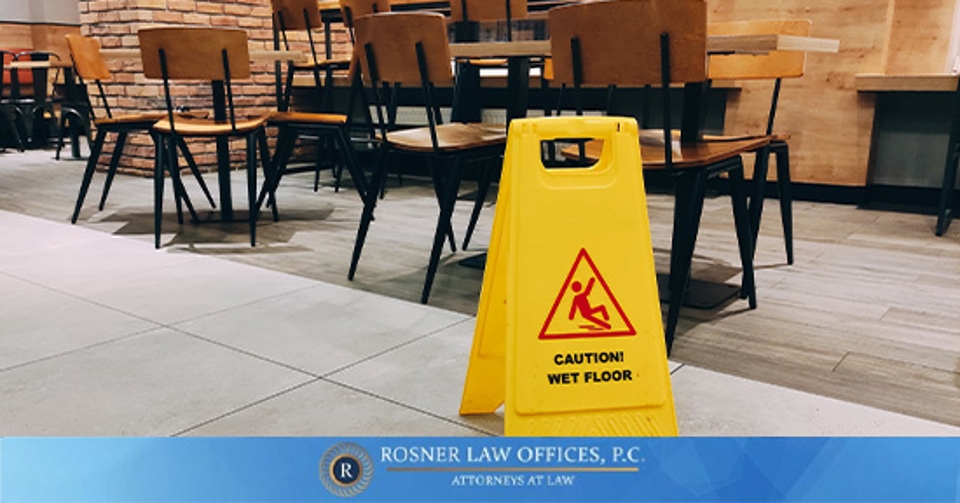While no one can predict the specific outcome in any given case, in general, personal injury cases move through the system in a predicable way. First, of course, there is the injury. A person may suffer injuries in a car accident, on a construction site, a trip and fall injury, a slip and fall injury, due to medical malpractice, or even because of a defective product, whether or not it was subject to a product recall. Regardless of why, first, there must be an injury.
Next, the injured person, or their representative, meets with a personal injury attorney to discuss the facts leading to the injury. In most cases, we must establish the fault or negligence of someone else, whether it be a company, corporation or an individual who likely has insurance coverage. Where it is evident there is a claim, the following steps occur:
- The lawyer investigates the accident and obtains the police reports or accident reports, witness statements, photographs, or surveillance video of the accident if available;
- The lawyer obtains the important, relevant medical records and reports;
- The lawyer may attempt to settle the case before filing the lawsuit, if possible;
- If the case cannot be settled before litigation, then the lawyer files a summons and complaint on behalf of the injured party, called the plaintiff;
- The other side, referred to as the defendant, files an answer;
- Discovery begins and at the conclusion of discovery, most cases have mandatory arbitration which is like a mini-trial;
- At all times during this process your lawyer may attempt to negotiate an out of court settlement if possible:
- If all efforts at Settlement fail, then your case will proceed to trial; and
- If there is a trial, there is the possibility of an appeal.
At any stage during the proceedings, the defendant may make an offer to resolve the case. When this happens, the lawyer for the plaintiff conveys this offer, along with their opinion about the merits of the offer. You as the client should always get the final say on whether or not to take a settlement offer. However, you should seriously consider your lawyer’s professional opinion on whether or not to accept a settlement offer.
Understanding Summons and Complaint and Answers in Personal Injury Cases
When your lawyer files a summons and complaint of the injured person, this begins the lawsuit process. A summons and complaint is a document detailing the injury, who the plaintiff believes is responsible for the injury, and why they are responsible. The complaint is answered by the lawyers representing the defendants who are the persons or business who caused the injury and insurance company of the defendant. Typically, the answer contains denials of all or most of the assertions made in the complaint. This begins the long process of personal injury cases in the court system. In NJ, depending on what county your case is filed in, it could take 1 to 3 years or more to go through with the litigation process once it is filed.
Discovery: The Next Stage in the Process
“Discovery” defines the process the parties go through in exchanging information about the case. They evaluate the case, either determining the value of a negotiated settlement or preparing for trial. The process of discovery includes disclosing information through interrogatories, request for documents, defense medical examinations, and depositions.
Interrogatories are a list of written questions from the other side. The lawyers assist in the response to interrogatories.
Request for documents includes all written information about the case including the investigative reports, witness statements, all the medical bills and reports, photographs and videos, and providing written authorizations for the other side to subpoena all of your medical and wage loss information.
Defense medical examinations are required by the court rules. You must submit to at least one or more of the defendant’s choice of Doctors for a medical examination to help them determine the nature and extent of your injuries from the defense perspective. Often, these Doctors are hired only for litigation for defense purposes, so a defense on the injuries can be established by the other side.
Depositions are live questioning by one side’s lawyer to the other side’s party to the action, or witnesses who have information critical to the case. In answering questions in interrogatories and depositions, the witnesses are under oath, subject to the penalties of perjury.
In addition to the above discovery exchanges, both sides will exchange their final expert reports, etc. All of this information allows attorneys to determine the nature and extent of injuries, the percentage of potential fault for both the plaintiff and defendant, and possible outcomes of the case should it go to trial.
Negotiation: Part of Any Personal Injury Case
During the course of this discovery period, when the information is exchanged, lawyers typically at least attempt to negotiate settlement. This may take several discussions, as the attorneys debate the merits of an expert’s opinion, or the strength of their cases. Most cases in New Jersey settle without a jury trial, however sometimes a jury trial is necessary. In negotiated settlements, a dollar amount is agreed on to resolve the case without trial.
Personal Injury Trials
If your case goes to a trial, the lawyers give opening statements, present witnesses, offer evidence, cross examine witnesses, and make closing arguments. Lawyers approach jury trials with an eye towards persuading the jury regarding issues of fault and liability and of the harms and losses and damages suffered by the plaintiff. In some cases, the parties can agree to allow a judge to decide the entire case. Trials always present risks not found in negotiated settlements. At trial, a jury may decide to award no money whatsoever to a plaintiff. Alternatively, the jury may award a large amount. However, both sides have the right to appeal a jury or court verdict, if they feel the case was not decided fairly and they have a legal basis to appeal. With a negotiated settlement, neither of these events occur.
Settlement Process
Once a case is settled, the settlement process begins. This process requires signing closing papers which usually consist of a Release of all claims and papers signed to end the litigation. Also, an exhaustive search for any child support or governmental liens must be done under Federal and NJ law before you can receive your settlement funds. Sometimes, this process alone can take a long time, especially if Medicare had paid any of your medical bills, as they are entitled to be reimbursed out or your settlement.
Have You Been Injured?
If you have been injured, you may be entitled to compensation for your injury. Only by talking to experienced personal injury attorneys will you know if you have a claim. At Rosner Law Offices, P.C., we pride ourselves in our client centered practice. We recognize every case is different. We will meet with you at no charge, and try to determine if you have a case that we should pursue.
Contact us today to discuss your case at (856) 502-1655.





